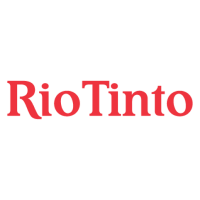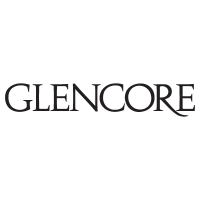
Anglo American PLC
LSE:AAL


| US |

|
Johnson & Johnson
NYSE:JNJ
|
Pharmaceuticals
|
| US |

|
Berkshire Hathaway Inc
NYSE:BRK.A
|
Financial Services
|
| US |

|
Bank of America Corp
NYSE:BAC
|
Banking
|
| US |

|
Mastercard Inc
NYSE:MA
|
Technology
|
| US |

|
UnitedHealth Group Inc
NYSE:UNH
|
Health Care
|
| US |

|
Exxon Mobil Corp
NYSE:XOM
|
Energy
|
| US |

|
Pfizer Inc
NYSE:PFE
|
Pharmaceuticals
|
| US |

|
Palantir Technologies Inc
NYSE:PLTR
|
Technology
|
| US |

|
Nike Inc
NYSE:NKE
|
Textiles, Apparel & Luxury Goods
|
| US |

|
Visa Inc
NYSE:V
|
Technology
|
| CN |

|
Alibaba Group Holding Ltd
NYSE:BABA
|
Retail
|
| US |

|
JPMorgan Chase & Co
NYSE:JPM
|
Banking
|
| US |

|
Coca-Cola Co
NYSE:KO
|
Beverages
|
| US |

|
Walmart Inc
NYSE:WMT
|
Retail
|
| US |

|
Verizon Communications Inc
NYSE:VZ
|
Telecommunication
|
| US |

|
Chevron Corp
NYSE:CVX
|
Energy
|
Utilize notes to systematically review your investment decisions. By reflecting on past outcomes, you can discern effective strategies and identify those that underperformed. This continuous feedback loop enables you to adapt and refine your approach, optimizing for future success.
Each note serves as a learning point, offering insights into your decision-making processes. Over time, you'll accumulate a personalized database of knowledge, enhancing your ability to make informed decisions quickly and effectively.
With a comprehensive record of your investment history at your fingertips, you can compare current opportunities against past experiences. This not only bolsters your confidence but also ensures that each decision is grounded in a well-documented rationale.
Do you really want to delete this note?
This action cannot be undone.

| 52 Week Range |
1 734.681
3 320
|
| Price Target |
|
We'll email you a reminder when the closing price reaches GBX.
Choose the stock you wish to monitor with a price alert.

|
Johnson & Johnson
NYSE:JNJ
|
US |

|
Berkshire Hathaway Inc
NYSE:BRK.A
|
US |

|
Bank of America Corp
NYSE:BAC
|
US |

|
Mastercard Inc
NYSE:MA
|
US |

|
UnitedHealth Group Inc
NYSE:UNH
|
US |

|
Exxon Mobil Corp
NYSE:XOM
|
US |

|
Pfizer Inc
NYSE:PFE
|
US |

|
Palantir Technologies Inc
NYSE:PLTR
|
US |

|
Nike Inc
NYSE:NKE
|
US |

|
Visa Inc
NYSE:V
|
US |

|
Alibaba Group Holding Ltd
NYSE:BABA
|
CN |

|
JPMorgan Chase & Co
NYSE:JPM
|
US |

|
Coca-Cola Co
NYSE:KO
|
US |

|
Walmart Inc
NYSE:WMT
|
US |

|
Verizon Communications Inc
NYSE:VZ
|
US |

|
Chevron Corp
NYSE:CVX
|
US |
This alert will be permanently deleted.
Profitability Summary
Anglo American PLC's profitability score is 44/100. We take all the information about a company's profitability (such as its margins, capital efficiency, free cash flow generating ability, and more) and consolidate it into one single number - the profitability score. The higher the profitability score, the more profitable the company is.

Score
We take all the information about a company's profitability (such as its margins, capital efficiency, free cash flow generating ability, and more) and consolidate it into one single number - the profitability score. The higher the profitability score, the more profitable the company is.
We take all the information about a company's profitability (such as its margins, capital efficiency, free cash flow generating ability, and more) and consolidate it into one single number - the profitability score. The higher the profitability score, the more profitable the company is.

Score

Score
Margins
Profit margins represent what percentage of sales has turned into profits. Simply put, the percentage figure indicates how many cents of profit the company has generated for each dollar of sale.
Profit margins help investors assess if a company's management is generating enough profit from its sales and whether operating costs and overhead costs are being contained.
Earnings Waterfall
Anglo American PLC

|
Revenue
|
21.8B
USD
|
|
Cost of Revenue
|
-17.3B
USD
|
|
Gross Profit
|
4.4B
USD
|
|
Operating Expenses
|
-966m
USD
|
|
Operating Income
|
3.5B
USD
|
|
Other Expenses
|
-7.8B
USD
|
|
Net Income
|
-4.3B
USD
|
Margins Comparison
Anglo American PLC Competitors

| Country | Company | Market Cap |
Gross Margin |
Operating Margin |
Net Margin |
||
|---|---|---|---|---|---|---|---|
| UK |

|
Anglo American PLC
LSE:AAL
|
38.2B GBP |
20%
|
16%
|
-20%
|
|
| AU |

|
BHP Group Ltd
ASX:BHP
|
248.6B AUD |
57%
|
38%
|
18%
|
|
| AU |

|
Rio Tinto Ltd
ASX:RIO
|
240.7B AUD |
0%
|
26%
|
19%
|
|
| UK |

|
Rio Tinto PLC
LSE:RIO
|
103.1B GBP |
0%
|
26%
|
19%
|
|
| MX |

|
Grupo Mexico SAB de CV
BMV:GMEXICOB
|
1.5T MXN |
48%
|
45%
|
25%
|
|
| CH |

|
Glencore PLC
LSE:GLEN
|
57.1B GBP |
3%
|
1%
|
-1%
|
|
| CN |

|
CMOC Group Ltd
SSE:603993
|
518.8B CNY |
18%
|
16%
|
10%
|
|
| SA |

|
Saudi Arabian Mining Company SJSC
SAU:1211
|
248.9B SAR |
32%
|
23%
|
15%
|
|
| CN |
C
|
China Molybdenum Co Ltd
OTC:CMCLF
|
59.5B USD |
18%
|
16%
|
10%
|
|
| ZA |
A
|
African Rainbow Minerals Ltd
JSE:ARI
|
42.3B Zac |
-2%
|
-5%
|
3%
|
|
| RU |

|
GMK Noril'skiy Nikel' PAO
MOEX:GMKN
|
2.4T RUB |
44%
|
32%
|
10%
|
Return on Capital
Return on capital ratios give a sense of how well a company is using its capital (equity, assets, capital employed, etc.) to generate profits (operating income, net income, etc.). In simple words, these ratios show how much income is generated for each dollar of capital invested.




Return on Capital Comparison
Anglo American PLC Competitors

| Country | Company | Market Cap | ROE | ROA | ROCE | ROIC | ||
|---|---|---|---|---|---|---|---|---|
| UK |

|
Anglo American PLC
LSE:AAL
|
38.2B GBP |
-20%
|
-7%
|
6%
|
23%
|
|
| AU |

|
BHP Group Ltd
ASX:BHP
|
248.6B AUD |
20%
|
9%
|
22%
|
14%
|
|
| AU |

|
Rio Tinto Ltd
ASX:RIO
|
240.7B AUD |
19%
|
10%
|
15%
|
12%
|
|
| UK |

|
Rio Tinto PLC
LSE:RIO
|
103.1B GBP |
18%
|
9%
|
14%
|
10%
|
|
| MX |

|
Grupo Mexico SAB de CV
BMV:GMEXICOB
|
1.5T MXN |
20%
|
11%
|
21%
|
17%
|
|
| CH |

|
Glencore PLC
LSE:GLEN
|
57.1B GBP |
-5%
|
-2%
|
4%
|
5%
|
|
| CN |

|
CMOC Group Ltd
SSE:603993
|
518.8B CNY |
27%
|
11%
|
28%
|
15%
|
|
| SA |

|
Saudi Arabian Mining Company SJSC
SAU:1211
|
248.9B SAR |
11%
|
5%
|
9%
|
9%
|
|
| CN |
C
|
China Molybdenum Co Ltd
OTC:CMCLF
|
59.5B USD |
27%
|
11%
|
28%
|
15%
|
|
| ZA |
A
|
African Rainbow Minerals Ltd
JSE:ARI
|
42.3B Zac |
1%
|
0%
|
-1%
|
0%
|
|
| RU |

|
GMK Noril'skiy Nikel' PAO
MOEX:GMKN
|
2.4T RUB |
17%
|
5%
|
22%
|
14%
|
Free Cash Flow
Free cash flow (FCF) is the money a company has left over after paying its operating expenses and capital expenditures. The more free cash flow a company has, the more it can allocate to dividends, paying down debt, and growth opportunities.
If a company has a decreasing free cash flow, that is not necessarily bad if the company is investing in its growth.


































